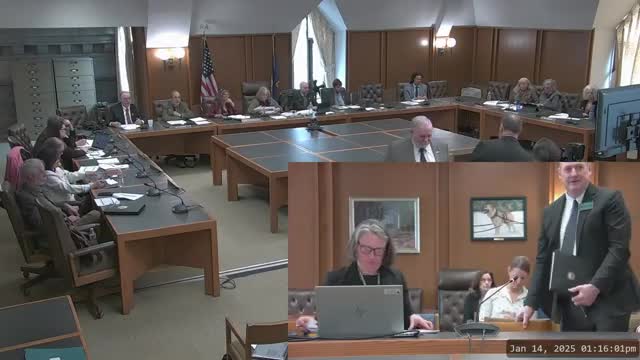Pesticide control division briefs committee on licensing, product registration and enforcement
Get AI-powered insights, summaries, and transcripts
Subscribe
Summary
The Division of Pesticide Control told lawmakers it licenses applicators, registers pesticide products, inspects uses and enforces rules; inspectors handled more than 600 inspections last year and product registration totals run in the thousands.
David Russo, director of the Division of Pesticide Control at the Department of Agriculture, told the Environment and Agriculture Committee that the division’s work focuses on three core areas: licensing, product registration and enforcement. The division also conducts outreach and maintains partnerships with state and federal agencies.
Russo described the licensing regime for people who apply pesticides on property they do not own (commercial applicators) and for agricultural users of restricted‑use products. He said the division issues licenses on a five‑year cycle with annual renewals and continuing education credits; last year the program issued roughly 26,100 licenses (most commercial), and the division runs training to help applicators meet recertification requirements.
The division registers pesticide products used in the state and maintains a registration database. Russo said about 13,000 products were registered last year; the registration process generates a dedicated fund (25% retained for integrated pest management, 75% to the general fund). He noted that the division leverages multi‑state coordination to keep up with product reviews.
On enforcement, Russo described an inspection program that includes scheduled compliance checks, complaint responses and “use observation” inspections to confirm applicators follow label directions and environmental safeguards. Two field inspectors completed more than 600 inspections last year. The division also administers special permits for pesticide uses near water, enforces setback rules and samples water when necessary.
Russo said the division’s integrated pest management program issues small grants (typically four to six per year) to encourage non‑chemical control techniques, and the division partners with the University of New Hampshire Cooperative Extension on education and trainings for licensees.
Committee members asked about whether herbicides are covered (yes), whether organic materials can trigger licensing requirements for commodity producers (yes, if used as a pesticide), and whether the pesticide control board may bar a federally registered product from sale in New Hampshire (yes). Russo said the division has a 13‑member Pesticide Control Board appointed by the governor that advises on policy and regulations.
